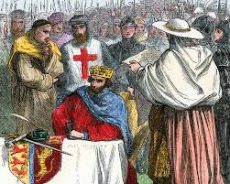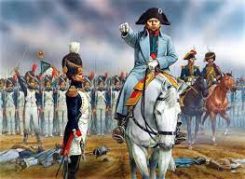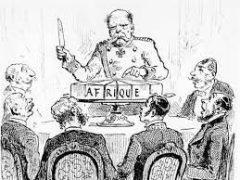Contents
We generally hear the phrase Magna Carta on television, in podcasts, in talk shows or in conversations about individual freedom. The Libertatum, which is frequently referred to especially in constitutional debates and is also known as Magna Carta Libertatum in Latin, means “Great Charter” or “Great Charter of Freedoms” in English. It is the first known written constitution in the world and also a very important historical treaty. It will be important for our general culture to briefly discuss such an important event which is usually mentioned short sentences in conversations.
As the writer team, we have stated before that we believe that personal development, vision and general culture knowledge will be very useful for career management and future 😊 Accordingly, learning and understanding the Great Charter briefly will be useful for our general culture and our personal development. Also you can click here for full articles of it . Please do not forget that History is important. 🙂
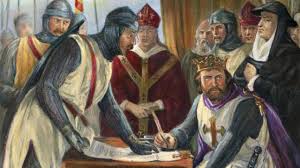
What is Magna Carta?
When we look back at history, we can say that Magna Carta formed the basis of the rule of law, democracy and the universal declaration of human rights. However, at the time it was signed, that is, in 1215, this treaty was actually determining and balancing the boundaries of sovereignty between the King and the feudal Barons. Actually, it is obvious that the Great Charter of Freedoms was a result of power struggle between them. Moreover, when it was first signed, it was not a treaty in which sovereignty or governing power was taken from the king and given to the people. In this regard, we should emphasize that at that time, society in England was divided into four. In line with that in the society divided into four as the King, the Clergy, the feudal barons or aristocrats and ordinary the people.
Unfortunately, the focus or starting point of Magna Carta was not the ordinary people in the first place. If we consider “the Great Carter” in this context, the financial difficulties and tensions that arose especially in the period of 1066, when the Normans declared war on Britain and besieged it, created great turmoil in England. Along with these, the oppressive government style of King of England, John I (the John without land), who constantly increased taxes as a result of his military failures and made regulations against the feudal barons, paved the way for signature of “the Great Charter of Liberties”.
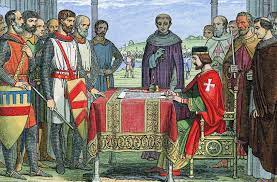
When Magna Carta signed
As a result of all these developments and due to a kind of power poisoning, King I. John took the Pope of the period against him. Consequently, the Barons and the Pope formed a common front, coalition and took a position against the king John without land. In the same period, John I, who was defeated in the war with France in 1214, was stuck in a corner thoroughly. King John, who refused to sign the Magna Carta in the first proposal brought to him, agreed to sign the contract when the Clergy and feudal Barons revolted in Stanford in 1215 and took London from him.
In this context, the Great Charter which limits the powers of the King in favour of the barons and is accepted as the first written constitution known in today’s sense, was signed between the King of England I. John (Without Land) and the barons in the “Salisbury castle” in the “Runny” region during the period of June 1215.
Crucial Articles
Magna Carta basically aimed to ensure the impartiality of the courts and to prevent the court from favouring and supporting the king or powerful aristocrats. In addition, this treaty, which aims to increase individual freedoms, has an importance and effect that changes the course of history. After this agreement, for the first time in history, the King of England voluntarily renounced some of his powers. In addition, with this agreement, the king was required to obtain approval from a structure similar to today’s parliament, consisting of clergy and feudal lords, when making important decisions. This modus operandi and system formed the basis of the parliamentary management system in today’s meaning and sense. At this point, we should also note that in England and continental Europe of the period, there were different classes called the King, Barons, clergy and ordinary people.
However, it should be noted that; This great edict is the first historical document to refer to the rule of law.
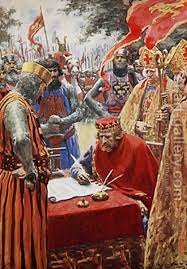
There are a total of 63 articles in Magna Carta, but the first three articles and Article 39 are shown as the most important articles. These articles were approved verbatim during the reign of all subsequent kings. As it was highlighted before, the articles of it formed the basis of today’s universal declaration of human rights, democratic form of government and legal system. As for the physical examples of the relevant treaty, unfortunately the original version of this Great Edict has been lost. However, 4 copies have survived to the present day and copies of the Great Charter of Liberties are exhibited in Sallisburg, Lincoln Cathedrals and the British Museum in London.
First 3 articles of Magna Carta
- The first article is very important for the rights and freedoms of individuals. According to this article; “No independent person or individual may be imprisoned, exiled, his property seized, or killed except by a decision made by just and free courts.”
- This article underlines the importance of justice and the necessity of equality for everyone. This article says; “Justice and court decisions cannot be knowingly delayed or sold, and no independent free individual can be deprived of justice.”
- The third article refers to the importance of the parliament consisting of lords and clergy. According to this article; “No tax or similar allowance not included in the Magna Carta, that is, the Great Charter of Liberties, may be collected without asking the assembly of federal barons and clergy.”
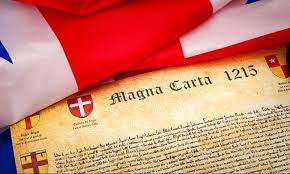
What significant About It
The most important article of Magna Carta is its 39th article. In the 39th article there is a phrase which says; “No independent and free individual may be exiled, outlawed, his property seized, imprisoned, or harmed by anyone without a decision by the courts.”
As it mentioned before although the first three articles are very important, Article 39 of it laid the foundation of today’s legal system and personal freedoms. On the other hand, the King is no longer the only authority and his form of government has now changed from a definitive and authoritarian absolutism to a kind of parliamentary system.
At this point, if we briefly look at the results of Magna Carta;
- As we mentioned before, the government evolved from absolutism to a parliamentary system with feudal lords and popes.
- The authority and power of the king weakened and feudalism gained strength.
- With the Magna Carta, the first written constitution in history, the rights of citizens, personal characteristics and the rule of law were emphasized for the first time in history.
It is important to have at least a basic understanding of such issues, which are considered the foundation of modern liberal democracy. At this point, we believe that a basic knowledge of history and democracy is necessary for both personal development and climbing the career ladder.

